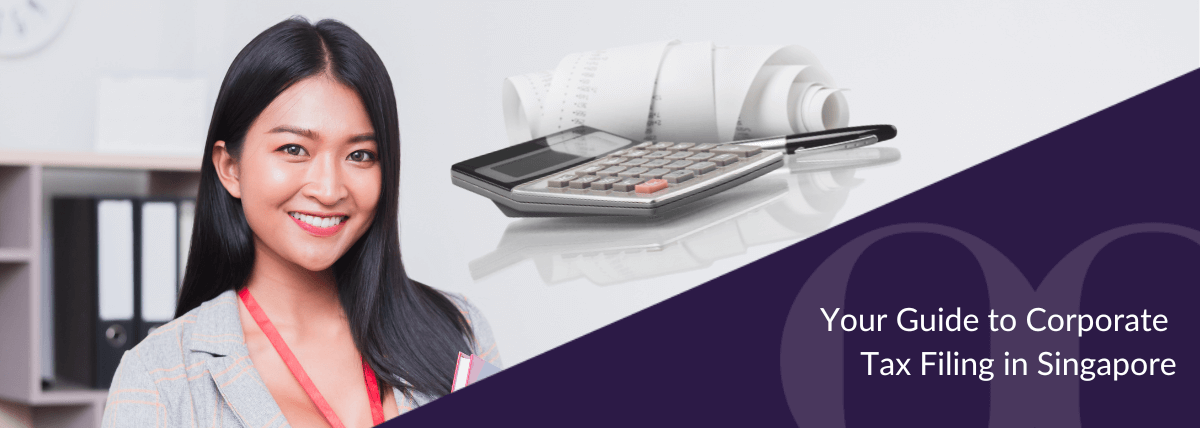How to Start a Business in Singapore
Thinking of starting a business in Singapore? You’re not alone. As the legal landscape in Hong Kong continues to evolve, many companies are choosing to set up second headquarters in Singapore. And it’s easy to see why when the country is:
- consistently rated by the World Bank as the best country in Asia to do business and the second best nation in the world to do business;
- ranked first in the world for political and operational stability in the Global Innovation Index 2020; and
- ranked first in the Asia Pacific (APAC) region and fifth in the world for economic competitiveness by the IMD World Competitiveness Yearbook 2021.
Expanding into a new international market is exciting for any business, but it also presents its own set of significant challenges. For many executives, the first hurdle is understanding how the company formation regulations and processes work in the new jurisdiction.
Our guide below gives you an overview of everything you need to know about how to start a business in Singapore.
Singapore Market Profile
Office rental pricing: Average monthly rent for grade A office space in Singapore was $SGD 9.90 per square foot for the second quarter of 2021.
Average office space density: 10m2 per person
Fixed internet download speed: 256.03 megabits per second in July 2021
Mobile internet download speed: 85.93 megabits per second in July 2021
Gross Domestic Product US$ bn: 340
Population (million): 5.70
Official languages: there are four official languages spoken in Singapore including:
- English;
- Chinese;
- Malay; and
- Tamil.

Benefits of setting up a company in Singapore
As one of the largest business centres in Asia, Singapore offers many benefits to companies looking to establish a presence in the region, including:
- Attractive tax structure: Singapore’s corporate tax is fixed at a competitive rate of 17% on chargeable income, whether a company is local or foreign. There are several corporate tax relief schemes available, including:
Tax Exemption Scheme for New Start-up Companies
Qualifying companies are given the following tax exemptions for the first three consecutive years of assessment (YAs) where the YA falls in:
| YA 2020 onwards |
|
| YA 2010–2019 |
|
Partial Tax Exemption for all companies
All companies, including companies limited by guarantee, can enjoy the following tax exemption:
| YA 2020 onwards |
|
| YA 2010–2019 |
|
Corporate Income Tax Rebate
Given to all companies:
| YA 2020 onwards |
|
| YA 2013–2019 |
In addition, there are many corporate tax incentives available to foster economic growth within the country. Our expert tax team here at BoardRoom can advise you on the tax incentives your company may qualify for.
Singapore does not tax capital gains on the sale of fixed assets or foreign exchange on capital transactions.
However, companies (irrespective of tax residency) operating in Singapore are taxed on income sourced in the country and foreign income when remitted to and received in Singapore.
But, as the Inland Revenue Authority of Singapore (IRAS) states:
Companies that are Singapore tax residents can enjoy tax breaks on foreign income as follows:
a. Upfront exemption or reduction in tax imposed on the foreign income, when foreign income is derived in a jurisdiction that has an Avoidance of Double Taxation Agreement (DTA) with Singapore;
b. Tax exemption of specified foreign income such as foreign-sourced dividends, branch profits and service income; and
c. Foreign tax credit for the taxes paid in the foreign jurisdiction against the Singapore tax payable on the same income.

- Highly competitive economy: Singapore is one of the most competitive economies in the world, ranking first in the Asia Pacific (APAC) region and fifth in the world for economic competitiveness by the IMD World Competitiveness Yearbook 2021.
- No foreign ownership restrictions: 100% of the shares of incorporated companies in Singapore can be owned by foreigners or foreign companies (except for broadcasting and domestic news media). There are no export tariffs and foreign exchange controls in Singapore, but there are import tariffs on:
- intoxicating liquors;
- tobacco products;
- motor vehicles;
- petroleum products; and
- biodiesel blends.
- Bilingual business communication: English is widely used in Singapore, making it easier for foreign investors to establish companies within the region.
How to establish a company in Singapore
Here is our step-by-step guide for how to register a business in Singapore:
01 Choose a company type
The two most common company types for businesses operating in Singapore are:
- Limited Liability Company: This entity type means that a business is set up as its own legal entity. Foreign investors often prefer this type because it offers limited liability for business owners. Companies can be limited by shares or by guarantee.
- Foreign Company Office: Foreign companies can register in Singapore as either a representative office or a branch office. Neither option creates a separate legal entity, however, so all liability extends to the parent company.
02 Give your company a name
Your company must avoid choosing a name that is:
- the same as an existing business name already approved by the Accounting and Corporate Regulatory Authority (ACRA);
- undesirable ie., names which are vulgar, obscene or offensive; and
- prohibited by order of the Minister for Finance.
You can search the online business and company name register in Singapore, BizFile, to check if your preferred name is available.
03 Set up your company structure
Next, you need to determine the structure of your company per the following requirements:
- Directors: a minimum of at least one person. One director needs to be a natural person (ie. an individual). Directors must be aged 18 years or older and be either:
- a Singaporean citizen; or
- permanent resident; or
- a person with an Employment Pass; or
- a person with an Entrepreneur Pass (EntrePass).
To satisfy your local director requirements in Singapore, we provide a nominee director service.
- Shareholders: a minimum of at least one shareholder. 100% of shares can be foreign-owned.
- Company secretary: a sole director must not act as the company secretary. To register a company in Singapore, you must appoint a natural person who lives in Singapore as a company secretary.
We provide expert company secretarial services so that your company can meet all of its statutory obligations in Singapore.
- Share capital: the minimum issued capital must be at least $SGD1.
- Registered address: must be a physical address in Singapore, not a P.O. Box. If your business does not yet have local office space, professional service firms like BoardRoom can provide your company with a registered office location.
04 Submit company registration application
A foreigner looking to operate a business in Singapore that is venture-backed or owns innovative technologies is eligible to apply for an EntrePass. This will allow them to submit their application online through BizFile. However, foreigners without an EntrePass should consider engaging with the services of a registered filing agent, such as BoardRoom.
05 Make other permit and business licence applications (if applicable)
Depending on the type of business you operate, you may need to apply for other permits and business licences. Find more information about permits and licences here.

How to successfully open a business in Singapore
While it can be complex, the process of opening a business in Singapore as a foreigner doesn’t have to be difficult. Our team of company incorporation experts at BoardRoom can guide you through every step of the incorporation journey to make it as smooth and seamless as possible.
Not only can our team help you incorporate with ease, but we can also take care of your company secretarial needs.
Speak to one of our specialists today to get started in setting up your business in Singapore.




